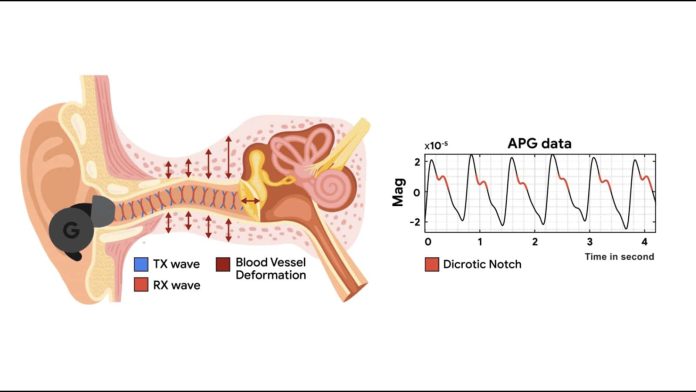[ad_1]
In the aftermath of a global pandemic, keeping an eye on our health metrics, like heart rates and blood oxygen levels, has become more important than ever. But this usually requires users to wear smartwatches or bands, which many do not prefer since they are bulky and do not last long on a charge. However, all this could change, as a recent study from Google on audioplethysmography (APG) technology suggests that they can convert any active noise-cancelling (ANC) earbuds into heart rate trackers via a software update.
How does this whole system work?
Unlike traditional smartwatches, which mostly rely on photoplethysmography (PPG) to detect heart rates, Google’s APG technology, when used in ANC earbuds, uses low-intensity ultrasound signals emitted by the earbuds’ speakers. These signals are then captured by onboard ANC mics, enabling the detection of subtle changes in the skin and heartbeat due to their proximity to the vessels in the ear canal, particularly the deep ear artery.
However, what makes this development even more exciting is the fact that the technology functions across various ear sizes, ear seals, different skin tones, and even during music playback.
Challenges and accuracy of the technology
While this technology could change the way people test their heart rates, Google did come across some major challenges in noisy environments. However, through experimenting with multiple frequencies, the company eventually identified the most accurate signal.
In terms of accuracy, Google’s testing, which involved 153 people, showed promising results, as the technology had a median error of 3.21% for heart rate and 2.70% for heart rate variability measurements across various scenarios.
However, despite these advancements, it’s important to note that this research is in its early stages, and although Google theoretically can release an update to earbuds, there’s no confirmation about the company implementing the APG technology in consumer products.
“APG represents new knowledge in biomedical and mobile research and unlocks new possibilities for low-cost health sensing,” said Google.
[ad_2]
Source link
